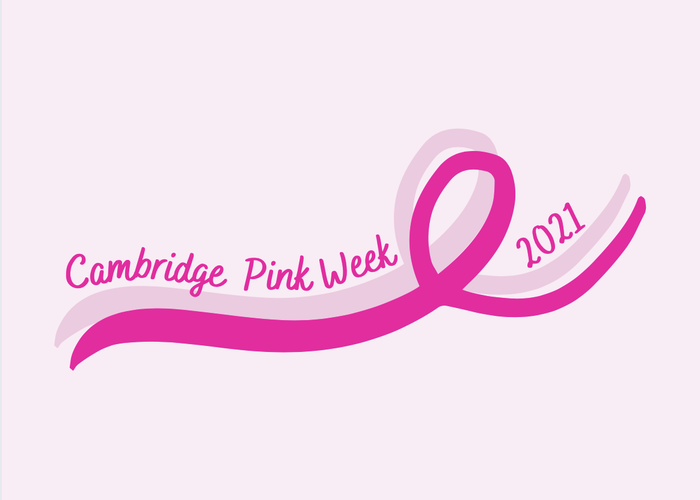It’s time to start screaming about female pleasure
We should be examining our relationship with female sexual pleasure and learning how to embrace it this Valentine’s Day, argues Ursula Moncrieff.

Female pleasure: two words that have risen to prominence in recent years, yet ones that still fail to hit the right spot. For all of the female empowerment of the last few decades, many taboos remain for women, notably regarding the idea of sexual pleasure. Discussion is alive – but absent from where we need it most: in our classrooms.
Recent controversy has been sparked by the exam board AQA’s decision to remove YouTuber Zoe Sugg’s website from their GCSE media studies course. The website was initially added as a case study to the course in 2017, but has now been taken off after complaints of inappropriate content on the site, namely a recent post reviewing the best sex toys of 2021. The ‘mature’ content of the site has been deemed ‘unsuitable’ for GCSE students. AQA has taken pains to point out that this includes not just the 16 year olds sitting the exam, but also the 14 year olds beginning the course.
“I am reminded of my own sex education, in which the topic of female pleasure was not so much censored as non-existent.”
Reading AQA’s statement, I am reminded of my own sex education, in which the topic of female pleasure was not so much censored as non-existent. Whilst boys were taken aside to be told about wet dreams and the process of their bodies’ pleasure systems – though largely in the context of function – girls were taught about periods and the far-off notion that one day we might give birth. The diagrams of female anatomy shown in school often do not even include the clitoris, as pleasure is erased from the dialogue, somehow confined to a separate, unspoken sphere.
Such silence is insidious and leaks outwards. Not only was female pleasure never mentioned in the classroom, but it remained a stifled and taboo topic of conversation throughout all five of my years at an all girls’ establishment, between the ages of 11 and 16. Whilst the boys I knew talked happily about masturbation habits and enjoyed universal societal affirmation of their pleasure, there was a culture of silence and shame around the same topics for us.
A Swedish study found that 15% of women aged 18 to 24 had never masturbated before, compared to just 1% of men. Another study showed that almost 30% of college-aged women could not identify the clitoris on an anatomy test. There is a volume of consequence to our silence on such matters.
This is, of course, distressing in its own right. There is no reason why women should not be enjoying their bodies as much as men. However, I believe that the dangers of the pleasure gap and the gulf in our sexual education stretch beyond simply which gender totals the most orgasms over the course of their lives.
“We are deluding ourselves if we think that teenagers will not find other sources of education.”
Whilst AQA questioned the suitability of Zoella’s website for 14 year olds, studies have found that 13 is the average age a boy will first be exposed to pornography. We are deluding ourselves if we think that teenagers will not find other sources of education in the absence of proper provision in schools. If porn is where most men, and often women too, are discovering their first notions of female pleasure, then I cannot help but feel the future prospects for our understanding of it are bleak.
How can we hope to transform our contemporary ‘boys will be boys’ culture if male pleasure continues to be a social priority, and female pleasure is either erased or viewed through a male lens? Should we not be encouraging people to understand their own bodies before they engage with anyone else’s?
AQA’s decision to remove Zoella’s website is indicative of the taboo that still surrounds female pleasure in our society. It is not only misguided to think that teenagers are unaware of these topics, but wrong to think that they should be. When we remove pleasure from the narrative of education, and reduce sex entirely to function, this does not only affect female pleasure. It disregards any form of non-heterosexual practise.
In the Netherlands, a comprehensive sex education is mandated for all students from the age of four, beginning with an emphasis on health, tolerance and assertiveness. Pleasure is discussed explicitly for both sexes, alongside a diverse exploration of what sex can mean that aims to break down the heteronormative, patriarchal culture that characterises sex education in the UK. The result is lower teenage pregnancy, higher reported sexual satisfaction and a greater culture of tolerance and understanding.
The transformation of social attitudes starts in education. Pleasure in sex is not only normal, but good – for both sexes. Female pleasure, in particular, can be complex and take some time to understand. Our silence on the matter is helping no one.
 News / Judge Business School advisor resigns over Epstein and Andrew links18 February 2026
News / Judge Business School advisor resigns over Epstein and Andrew links18 February 2026 News / Gov grants £36m to Cambridge supercomputer17 February 2026
News / Gov grants £36m to Cambridge supercomputer17 February 2026 News / Hundreds of Cambridge academics demand vote on fate of vet course20 February 2026
News / Hundreds of Cambridge academics demand vote on fate of vet course20 February 2026 News / CUCA members attend Reform rally in London20 February 2026
News / CUCA members attend Reform rally in London20 February 2026 News / Union speakers condemn ‘hateful’ Katie Hopkins speech14 February 2026
News / Union speakers condemn ‘hateful’ Katie Hopkins speech14 February 2026










